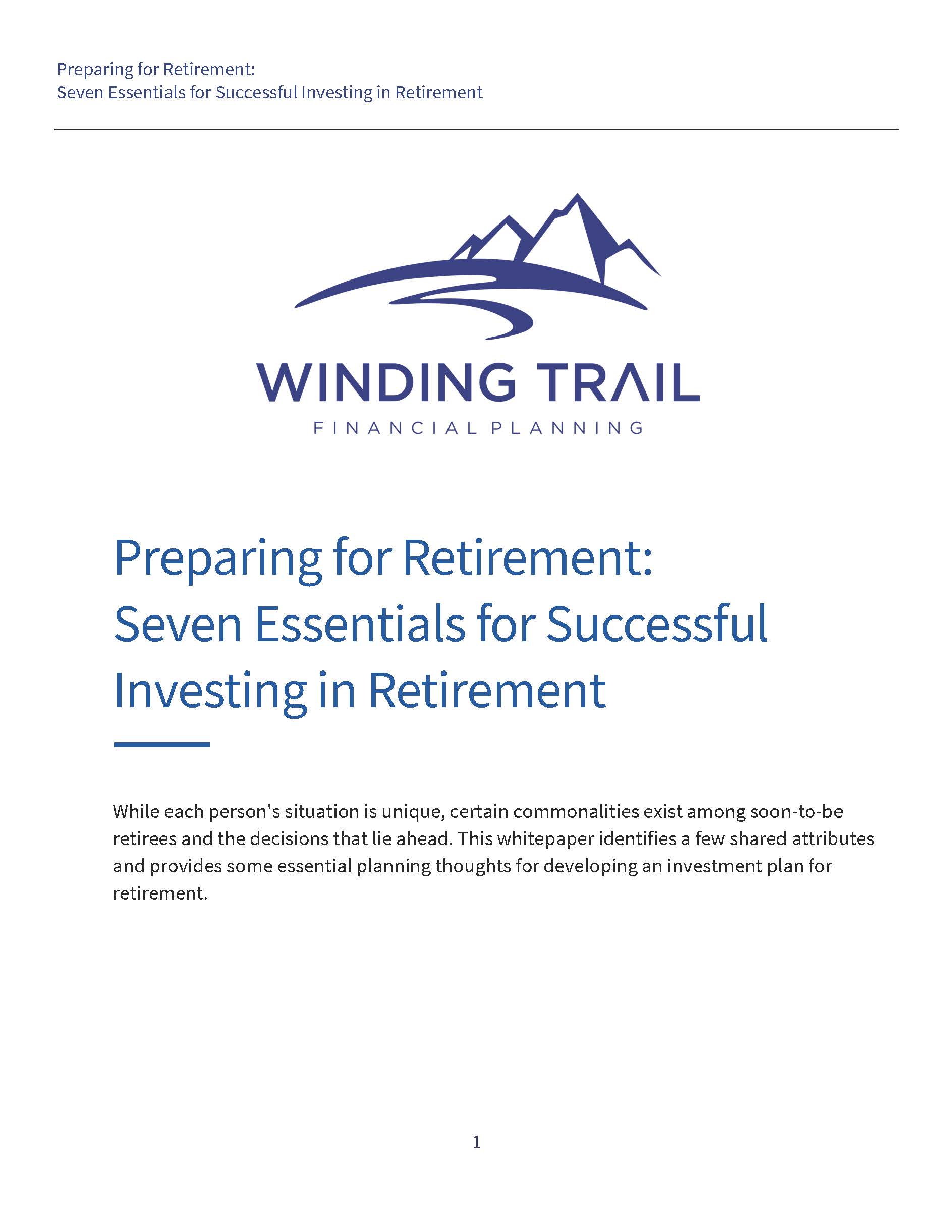Rental Real Estate: The Pros, Cons, and What to Know Before You Buy
May 15, 2025

Depending on who you ask, owning rental real estate is either the best wealth-building tool in the world—or a terrible idea that should be avoided at all costs.
I take the eyes wide open approach. In this post, I’ll share some key considerations to help you decide whether real estate investing is right for you.
First, a Bit of Cynicism (and Honesty)
Many financial advisors—including Winding Trail Financial—get paid to manage assets. That means there’s a built-in conflict of interest: when clients move money into rental properties, those managed assets (and the fees) often decrease.
Even without the cynicism, there’s another challenge: rental properties usually require CPAs, attorneys, and sometimes property managers. Advisors who don’t personally own rentals may not have the same depth of knowledge as these professionals—and they’re often prohibited from giving the two types of advice that matter most for rentals: tax and legal.
Bottom line: we tend to recommend what we know—and what we get paid for.
Who Might Rental Properties Make Sense For?
I think rental properties can work well for people who:
Take a long-term view
Have their financial “basics” covered (emergency fund, cash reserves, tax-advantaged accounts)
Understand the risks and responsibilities that come with being a landlord
If that’s you, here are some important factors to weigh before you buy.
1. Liquidity: Real Estate Isn’t Easily Cashed Out
Buying a rental property requires cash—for the down payment (or full purchase), transaction costs, inspections, and any repairs to make it rent-ready. That’s often thousands of dollars upfront, compared to the few hundred it takes to invest in mutual funds, ETFs, or stocks.
Selling isn’t quick, either. While “friction” can help prevent rash decisions, you can’t instantly cash out part of a property like you can with an investment portfolio. With stocks or ETFs, you can sell as little or as much as you want with a few clicks.
2. Diversification (or the Lack of It)
A rental property ties you to one property in one location—meaning your returns depend on one micro-economy.
Yes, some markets (Denver, Seattle, parts of California) have seen big gains. But not all neighborhoods rise equally, and downturns in your specific area can hurt.
By contrast, an index fund offers global diversification. You could also look into Real Estate Investment Trusts (REITs) for broader real estate exposure—though not all REITs are equal, and some have restrictions. They’re not perfect substitutes for owning physical property, but they can help address diversification and liquidity concerns.
3. Legal Exposure
Owning rentals means dealing with tenants, leases, and vendors. That opens you to legal risks that don’t exist with just stocks and bonds.
Insurance and good legal counsel help, but they don’t eliminate the risks—especially if you’re a high earner or have significant assets.
4. The “Cash Call” Factor
If you’ve ever owned a home, you know that repairs happen—often at the worst possible time.
For rentals, direct expenses might include roof replacements, new furnaces, or HOA assessments. Indirect expenses include covering the mortgage during a vacancy. Even if you’ve paid off the property, a long stretch without rent means less income in your pocket.
Unlike a stock portfolio, a rental can demand five figures in surprise costs—sometimes wiping out years of profit in one shot.
5. Tax Complexity
Yes, there are tax perks: depreciation deductions, potential 1031 exchanges, and more. But rental property tax rules are nuanced and can get complicated fast, especially with co-ownership, related-party transactions, or different property tax rates for rentals.
This is one area where I strongly recommend working with a tax pro who understands real estate.
6. “Passive” Doesn’t Mean “Hands-Off”
It’s easy to romanticize passive income—just collect rent checks, right? Not exactly.
Managing rentals involves finding tenants, handling repairs, marketing vacancies, and sometimes dealing with evictions. Even if you hire a property manager, you’re still running a business—not just holding an investment.
Final Thoughts
For many investors, the potential upside—control, tangible assets, possible market outperformance—outweighs the risks. But my advice is this: treat rental real estate like a business, not a hobby.
Know the numbers. Build a plan. Keep your eyes wide open.
If you’re thinking about adding rentals to your investment strategy, let’s talk. Schedule a call here.
—Dwight
Disclaimer: None of the information provided herein is intended as investment, tax, accounting or legal advice, as an offer or solicitation of an offer to buy or sell, or as an endorsement, of any company, security, fund, or other securities or non-securities offering. The information should not be relied upon for purposes of transacting securities or other investments. Your use of the information is at your sole risk. The content is provided ‘as is’ and without warranties, either expressed or implied. Winding Trail Financial Planning, LLC does not promise or guarantee any income or particular result from your use of the information contained herein. Under no circumstances will Winding Trail Financial Planning, LLC be liable for any loss or damage caused by your reliance on the information contained herein. It is your responsibility to evaluate any information, opinion, or other content contained.
Plan Your Next Chapter
Download our free guide "Seven Essentials for Successful Investing in Retirement" and get clarity on what really matters for your retirement success.

